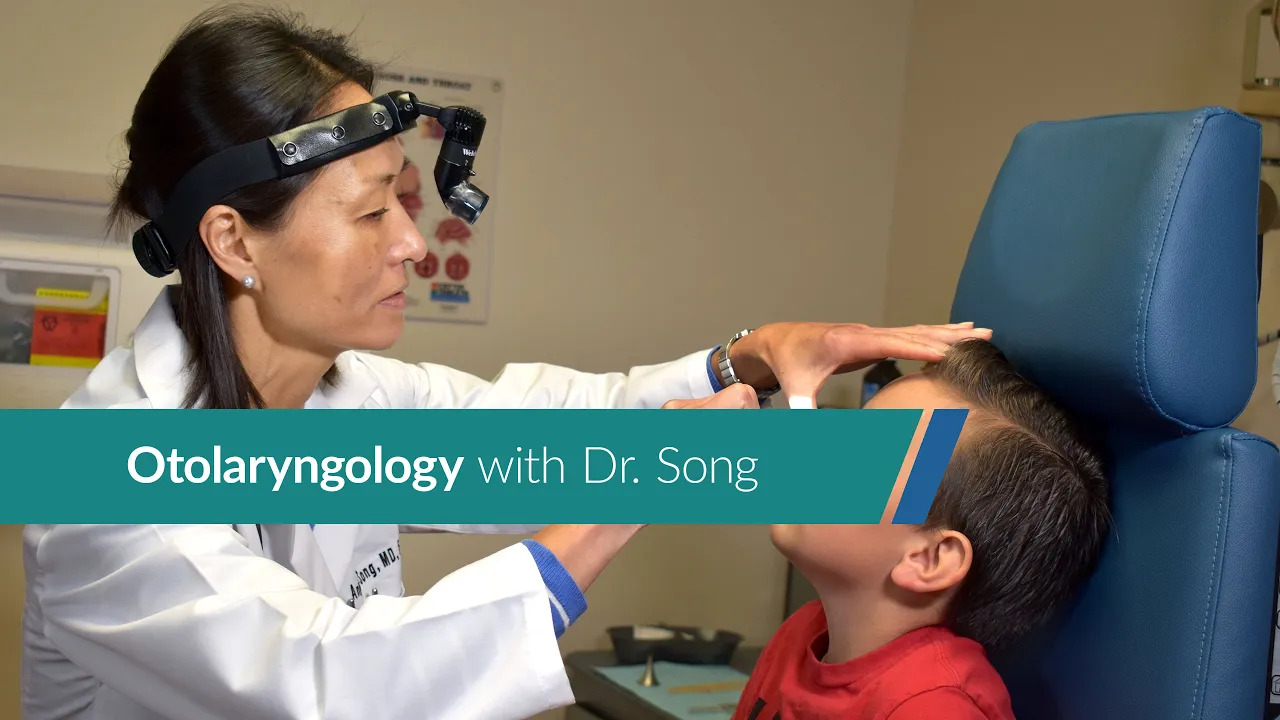Checking out the Field of Otolaryngology: What to Anticipate When You Consult an ENT
Otolaryngology, commonly described as ENT, incorporates the diagnosis and therapy of nose, throat, and ear disorders. For those experiencing related issues, speaking with an ENT professional can provide clearness and relief. Recognizing what to anticipate during such examinations is important for reliable communication and care. This review will describe key aspects of the ENT experience, consisting of typical factors for check outs and the processes entailed in medical diagnosis and therapy.

Comprehending Otolaryngology: A Review
Otolaryngology, typically referred to as ENT (Throat, nose, and ear) medication, is a specialized branch of medicine that concentrates on the medical diagnosis and treatment of conditions impacting these vital locations of the human body. This area incorporates a large array of conditions, including those associated to hearing, equilibrium, respiratory system function, and speech. Otolaryngologists are trained to take care of both clinical and surgical therapies, making use of sophisticated methods and modern technologies. Their proficiency prolongs past traditional disorders, resolving problems such as allergies, sinus infections, and hearing loss. In addition, they play a crucial function in the monitoring of head and neck cancers cells, giving complete care customized to private client requirements. In general, otolaryngology remains necessary for keeping health and wellness and lifestyle in affected people.
Common Reasons to See an ENT Specialist
Numerous people look for the knowledge of an ENT specialist for a range of reasons, reflecting the diverse nature of problems that impact the ear, nose, and throat. Typical issues consist of chronic sinusitis, which commonly brings about consistent nasal blockage and face pain. Allergies and their associated signs and symptoms, such as itching and sneezing, additionally prompt brows through to these experts (Otorrinolaringologia). Hearing loss, whether progressive or abrupt, is another considerable reason for consultation. In addition, people might seek assessment for throat disorders, consisting of persistent hoarseness or ingesting troubles. Rest apnea, characterized by disturbed breathing during rest, is often dealt with by ENT professionals as well. Each of these problems highlights the importance of specialized treatment in taking care of intricate ENT-related health and wellness issues
Preparing for Your ENT Visit
When preparing for an ENT visit, it is vital to gather appropriate details and consider any kind of specific problems. Individuals need to compile a thorough clinical background, consisting of previous ear, nose, or throat concerns, surgical treatments, and existing medicines. Recording signs and symptoms-- such as regularity, duration, and severity-- can give beneficial insights for the ENT professional. In addition, people ought to prepare a listing of concerns they desire to ask, making certain that all concerns are addressed during the go to. Bringing along any appropriate clinical records or test results can additionally assist the ENT in recognizing the person's problem. Ultimately, people should confirm their appointment information, consisting of area, day, and time, to lessen any final complication. Appropriate preparation can enhance the performance of the appointment and bring about much better outcomes.
What to Expect Throughout the Appointment
As the examination begins, the individual can expect to engage in a thorough conversation with the ENT specialist about their signs and symptoms and clinical background. The expert will ask about the duration, frequency, and intensity of symptoms such as hearing loss, nasal congestion, or sore throat. Furthermore, the patient's previous medical problems, drugs, and any kind of appropriate household background will certainly be evaluated, aiding the professional in forming a full understanding of the patient's health and wellness. The ENT might likewise inquire about way of living variables, such as exposure to irritants or irritants. This open discussion establishes a structure for the consultation, guaranteeing that the patient's concerns are addressed and establishing the stage for any type of essential examinations or referrals for treatment.
Diagnostic Examinations and Treatments in Otolaryngology
A series of diagnostic examinations and procedures are crucial in otolaryngology to properly evaluate and diagnose conditions affecting the throat, nose, and ear. Typical tests include audiometry, which measures hearing function, and tympanometry, examining middle ear stress. Nasal endoscopy allows visualization of the nasal passages and sinuses, while laryngoscopy checks out the throat and vocal cables. Imaging methods, such as CT scans and MRIs, offer thorough sights of head and neck frameworks. Allergic reaction testing might also be conducted to determine triggers for sinus or respiratory system problems. These diagnostic read here tools make it possible for ENT experts to establish a complete understanding of people' problems, ensuring customized and effective management plans. Proper diagnosis is important for successful treatment results in otolaryngology.
Therapy Alternatives Offered by ENT Specialists
ENT professionals offer a range of treatment alternatives tailored to resolve certain problems influencing the throat, nose, and ear. These treatments range from traditional strategies, such as drug and way of life adjustments, to more invasive treatments. Allergies might be taken care of with antihistamines or immunotherapy, while chronic sinus problems could call for nasal corticosteroids or sinus surgery. For hearing loss, ENT experts commonly suggest hearing help or medical treatments like cochlear implants. In situations of throat problems, choices can consist of speech treatment or procedures advice to remove blockages. Additionally, they may give guidance for handling sleep apnea, consisting of making use of CPAP gadgets or medical interventions. Overall, the goal is to improve people' quality of life through customized treatment and effective treatment strategies.
When to Seek Follow-Up Care With an ENT
Recognizing when to look for follow-up care with an ENT professional is crucial for taking care of ongoing signs and symptoms or issues connected to throat, nose, and ear problems. Clients should think about scheduling a follow-up appointment if signs and symptoms continue despite initial treatment, such as chronic ear pain, nasal congestion, or throat discomfort. Changes in hearing, balance concerns, or uncommon nasal discharge might additionally warrant additional analysis. Furthermore, if a client experiences side results from recommended drugs or has actually undergone a surgery, follow-up treatment is necessary to keep an eye on recovery and deal with any type of concerns. Prompt assessments can guarantee reliable monitoring of problems, protect against prospective complications, and offer comfort relating to one's health. Seeking follow-up care advertises proactive health and wellness monitoring in otolaryngology.
Often Asked Concerns

What Certifications Should I Seek in an ENT Expert?
When looking for an ENT expert, one should try to find board certification, relevant experience, and solid patient evaluations. In addition, reliable communication skills and a caring strategy can substantially improve the overall treatment experience.
Exactly how Do I Choose the Right ENT for My Needs?
Picking the best try this out ENT expert includes examining their credentials, experience, and individual reviews (Sinus). It is important to contemplate their interaction design and method to treatment, ensuring they line up with the person's certain wellness requirements and preferences
Exist Any Dangers Connected With ENT Procedures?
The dangers connected with ENT treatments might consist of infection, bleeding, anesthesia complications, and prospective damages to bordering frameworks. Clients must talk about these dangers with their physician to recognize individual concerns and assurance educated choices.
Exactly How Can I Take Care Of Anxiousness Before My ENT Visit?
To handle anxiousness prior to an appointment, people can exercise deep breathing exercises, envision favorable end results, prepare questions ahead of time, and look for assistance from buddies or family members, cultivating a sense of confidence and peace.
What Should I Do if I Experience Adverse Effects From Treatment?
If side impacts from therapy happen, the person must promptly report them to their medical care provider. Changes to therapy or additional treatments may be needed to assure security and performance in handling their condition - Hearing. As the examination begins, the individual can expect to engage in a complete discussion with the ENT specialist concerning their signs and symptoms and medical history. These analysis tools enable ENT professionals to create an extensive understanding of people' conditions, making sure customized and reliable management plans. ENT experts offer a range of therapy alternatives tailored to resolve specific conditions influencing the throat, ear, and nose. When seeking an ENT expert, one should look for board accreditation, pertinent experience, and strong client reviews. Choosing the ideal ENT specialist includes assessing their credentials, experience, and individual reviews
Comments on “Struggling Through Sinus Pain? Here's When to Call a Sinus ENT”